Nootropic Supplements That May Help Reduce Dissociative Brain Fog
Introduction
When you feel detached from your surroundings — as if your thoughts are wrapped in cotton, or your mind is several steps behind your body — it can be hard to explain what’s happening. For many people who experience dissociation, this “brain fog” feels like being half-awake inside your own life. It’s not simple forgetfulness or fatigue; it’s the brain’s way of protecting itself from overwhelm.
But here’s the catch: when that fog lingers for days, months, or years, it no longer protects — it imprisons. You can’t think clearly, stay focused, or feel emotionally present. Healing requires more than grounding exercises or therapy alone. It also means restoring the biochemical clarity that dissociation has dulled.
That’s where nootropics — natural compounds that support cognition, focus, and neural communication — can play a gentle, restorative role. They don’t override the nervous system like stimulants do. Instead, they nourish it. For trauma survivors or anyone dealing with chronic stress and detachment, certain nootropics can help lift the mental fog, supporting both cognitive performance and emotional integration.
Let’s explore how brain fog emerges from dissociation, what’s happening neurologically, and which natural nootropics may help bring your mind back into focus 🌿✨.
Looking for supplements for This? Click here.
Understanding Dissociative Brain Fog 🧬

Dissociation is the brain’s survival strategy — a neurological “off switch” that activates when emotions or experiences feel too intense. It’s not a sign of weakness; it’s a biological safety mechanism that numbs sensation, emotion, and thought to prevent overwhelm.
But that same protective mechanism also slows down neural communication. The regions of the brain responsible for attention, memory, and self-awareness — especially the prefrontal cortex, anterior cingulate cortex, and insula — become underactive. Meanwhile, the amygdala, which detects danger, stays on high alert.
The result is a split within consciousness: part of the brain is hypervigilant, while another part is offline. Cognitively, this feels like brain fog. You can’t concentrate. You forget simple things. Your thoughts seem distant or delayed. You may even feel like an observer in your own head.
The underlying biology often includes:
Reduced blood flow to frontal and limbic areas
Neurotransmitter imbalance, especially low dopamine and acetylcholine
Mitochondrial fatigue, limiting cellular energy
Inflammation in glial cells, disrupting focus and memory
Addressing this fog means more than “thinking harder.” It means restoring oxygen, nutrients, and neurotransmitter balance to the brain — rebuilding the foundation of mental presence.
That’s where nootropics can gently assist.
What Are Nootropics? 🌿
The term “nootropic” comes from the Greek nous (mind) and tropein (to turn or bend). Nootropics are substances that enhance brain function — not through force, but through support.
Unlike stimulants, which push the nervous system into high gear, nootropics improve the brain’s resilience, energy efficiency, and neurotransmitter balance. They help neurons communicate smoothly and protect against the oxidative stress and inflammation that impair cognitive clarity.
For people with dissociative brain fog, nootropics can help restore flow between thinking and feeling — reconnecting cognitive speed with emotional presence.
The best part? Many nootropics are natural plant compounds, amino acids, or nutrients that the body already recognizes and uses.
Why Brain Fog Persists After Trauma or Stress ⚡
After chronic stress or trauma, the brain’s stress system — the HPA axis — becomes dysregulated. Cortisol remains high even when you’re at rest, flooding the brain with signals that prioritize survival over higher thinking.
This stress chemistry reduces blood flow to the prefrontal cortex, the part responsible for planning, focus, and awareness. It also impairs mitochondrial energy production — literally dimming the brain’s “power supply.”
Inflammation rises as glial cells release cytokines, further slowing neural communication. Neurotransmitters like dopamine and acetylcholine drop, leaving you with dull concentration, low motivation, and mental disconnection.
Over time, this biochemical imbalance becomes the default setting — the fog doesn’t lift even when you’re calm. The goal of healing is to rebalance those systems, not overstimulate them.
Nootropics offer a subtle but effective path toward that balance, helping restore clarity without triggering anxiety or hyperarousal.
L-Theanine: Calm Focus 🍵
L-Theanine, an amino acid found in green tea, is one of the gentlest nootropics for trauma-related fog. It increases alpha brain waves, which promote relaxed alertness — the same state seen in mindfulness and meditation.
It also balances GABA, dopamine, and serotonin levels, creating calm without sedation. By lowering cortisol and supporting cognitive flexibility, L-theanine can help reduce both hyperarousal and mental dullness.
For people with dissociation, it’s like a bridge: it helps bring your mind online without pushing your nervous system too far. Most people feel its effects within 30–60 minutes — clear but serene, alert but grounded.
Looking for supplements for This? Click here.
Rhodiola Rosea: Recharging Cognitive Energy 🌸
Rhodiola is an adaptogenic herb that supports the brain under stress. It helps regulate cortisol, increases oxygen use, and enhances mitochondrial energy production — key factors in lifting mental fatigue.
Clinical studies show that Rhodiola improves memory, reaction time, and attention during periods of exhaustion. It increases levels of dopamine and norepinephrine in the prefrontal cortex — neurotransmitters often depleted in dissociation.
By rebalancing stress hormones, Rhodiola prevents the “crash and fog” cycle common after emotional or cognitive overload. It’s especially useful for those who feel chronically tired, unmotivated, or detached.
Bacopa Monnieri: Restoring Memory and Neural Communication 🌿
Bacopa is a traditional Ayurvedic herb known for enhancing memory and cognitive flexibility. It increases synaptic communication, protects neurons from oxidative damage, and promotes the growth of new dendritic connections.
In trauma-related brain fog, where short-term memory and attention often suffer, Bacopa helps rebuild communication between brain regions. It supports acetylcholine, the neurotransmitter of learning and focus, and enhances serotonin, which stabilizes mood.
Unlike stimulants, Bacopa’s effects build gradually over weeks. Users often notice clearer recall, smoother thinking, and a greater sense of internal “coherence.”
For dissociation, this means thoughts begin to feel more connected, reality sharper, and mental fatigue less overwhelming.
Lion’s Mane Mushroom: Supporting Neuroplasticity 🍄
Lion’s Mane (Hericium erinaceus) is one of the most promising natural nootropics for brain repair. It stimulates the production of nerve growth factor (NGF) — a protein that helps neurons grow, repair, and form new connections.
In dissociation, where parts of the brain have become functionally “disconnected,” promoting neuroplasticity is key. Lion’s Mane helps rebuild those bridges, both structurally and functionally.
Studies show it enhances cognitive function, reduces inflammation, and improves mood. Some people describe feeling mentally “brighter” or more embodied after a few weeks of use.
Its neuroregenerative effects make it particularly valuable for trauma recovery, where the brain’s wiring has been shaped by chronic stress.
Omega-3 Fatty Acids: Feeding the Brain 🐟
The brain is made up of nearly 60% fat — and omega-3 fatty acids, particularly DHA and EPA, are among the most essential. They form the structural basis of cell membranes, improve neurotransmitter receptor function, and reduce inflammation.
Low omega-3 levels are linked to brain fog, mood instability, and poor concentration. For people with dissociation, supplementing with omega-3s helps strengthen neural communication and restore emotional regulation.
EPA reduces stress-induced inflammation, while DHA enhances membrane fluidity, making it easier for neurons to send signals. Together, they create a more stable, responsive brain environment.
Consistent supplementation has also been shown to improve mood and resilience — two pillars of recovery from dissociative states.
Acetyl-L-Carnitine (ALCAR): Boosting Mitochondrial Clarity ⚡
Acetyl-L-Carnitine is an amino acid that supports mitochondrial function — the cellular process that generates energy for the brain. In dissociation, where the brain often runs on low energy due to chronic stress, ALCAR helps refuel neurons.
It enhances dopamine and acetylcholine synthesis, improving focus, alertness, and motivation. It also crosses the blood-brain barrier efficiently, providing fast support for mental clarity.
ALCAR’s antioxidant properties protect against oxidative stress — a key factor in trauma-related cognitive decline. Over time, it helps restore vitality without overstimulation.
For people who describe their brain fog as “mental exhaustion,” ALCAR can feel like turning the lights back on.
Phosphatidylserine: Repairing Stress-Damaged Cells 🧩
Phosphatidylserine (PS) is a phospholipid — a type of fat molecule found in every brain cell membrane. It helps neurons communicate, repair, and maintain structural integrity.
During chronic stress, PS levels decline, leading to slower thinking, forgetfulness, and difficulty processing emotions. Supplementing PS helps lower cortisol, improve memory, and restore mental agility.
Clinical trials have shown PS to enhance attention, working memory, and mental speed, especially in people experiencing fatigue or burnout.
In dissociation, PS acts like a neural moisturizer, improving the brain’s flexibility and responsiveness to both thought and emotion.
Ginkgo Biloba: Enhancing Blood Flow and Awareness 🍃
Ginkgo Biloba improves cerebral circulation, increasing oxygen and nutrient delivery to the brain. Since dissociation often involves reduced blood flow to the prefrontal cortex, Ginkgo helps restore vitality to areas responsible for focus and awareness.
It also enhances acetylcholine and dopamine activity, which sharpens memory and reduces mental sluggishness.
By improving microcirculation, Ginkgo can help lift the “gray fog” sensation of dissociation — that blurry separation between perception and reality. It’s subtle, but over time, it helps reawaken clarity.
N-Acetyl Cysteine (NAC): Clearing Mental Toxicity 💨
NAC is a precursor to glutathione, the body’s master antioxidant. It reduces oxidative stress and supports detoxification in the brain. Chronic stress depletes glutathione, leading to inflammation that contributes to cognitive fog and emotional numbness.
NAC also modulates glutamate, an excitatory neurotransmitter often dysregulated in trauma. Too much glutamate leads to mental overstimulation; too little results in dullness or detachment. NAC helps normalize this balance.
Clinical research also suggests NAC can improve mood, attention, and motivation by influencing dopamine pathways. For those stuck in dissociative fatigue, it’s a gentle brain cleanser — clearing static so signals can flow freely again.
Panax Ginseng: Restoring Mental Drive 🌞
Panax Ginseng has long been used in traditional medicine to improve focus, stamina, and stress tolerance. It increases dopamine activity, enhances mental endurance, and helps regulate the adrenal response to stress.
In dissociation, where fatigue and demotivation often dominate, ginseng can help reignite energy without creating jitters. It supports balanced alertness — mental readiness paired with calm confidence.
Its adaptogenic effects also help normalize cortisol patterns, allowing the body to recover from long-term stress depletion.
Ginseng’s ability to enhance both cognition and vitality makes it a strong ally for rebuilding mental presence.
Choline and Citicoline: Fuel for Focus 🔋
Choline is a nutrient that serves as the precursor for acetylcholine, the neurotransmitter responsible for focus, learning, and awareness. When acetylcholine levels are low, thoughts feel sluggish and disconnected — a classic symptom of brain fog.
Citicoline (CDP-Choline) is a highly bioavailable form that also supports phospholipid synthesis, helping neurons repair their membranes.
Together, they enhance communication between brain regions, improving attention, working memory, and presence.
In dissociation, choline supplementation helps restore that “mental click” — the sense that your thoughts are immediate and coherent again.
Curcumin: Anti-Inflammatory Clarity 🌼

Curcumin, the active compound in turmeric, is a potent anti-inflammatory and antioxidant. It reduces neuroinflammation, improves mood, and supports dopamine and serotonin signaling.
Chronic inflammation is a major cause of cognitive fog. By calming the brain’s inflammatory response, curcumin helps lift that dull, heavy feeling that makes thinking effortful.
It also boosts BDNF (Brain-Derived Neurotrophic Factor), a growth factor that promotes neuroplasticity — essential for reconnecting neural pathways disrupted by dissociation.
Taken with black pepper extract (piperine) for better absorption, curcumin provides steady, cumulative cognitive and emotional clarity.
Rebuilding Presence Through Biochemistry 🌿💫
Healing dissociative brain fog isn’t about “fixing” yourself — it’s about rebalancing what chronic stress has depleted. Nootropics create the internal conditions for presence: stable neurotransmitters, efficient energy metabolism, and reduced inflammation.
When you combine these supplements with mind-body practices like breathwork, grounding, and trauma-informed therapy, the results go beyond cognitive clarity. You begin to feel here again.
Your thoughts stop drifting. Your memory strengthens. Your emotions regain color. The fog lifts, and the world feels closer — not overwhelming, just real.
That’s the promise of gentle, restorative nootropics: they don’t force the brain to perform — they remind it how.
Looking for online therapy ? Click Here.
References
Kennedy, D. O. (2016). “B vitamins and the brain: Mechanisms, dose, and efficacy.” Nutrients, 8(2): 68.
Panossian, A., & Wikman, G. (2010). “Effects of adaptogens on the central nervous system.” Pharmaceuticals, 3(1): 188–224.
Stough, C., et al. (2008). “The chronic effects of an extract of Bacopa monnieri on cognitive function in healthy humans.” Psychopharmacology, 156(4): 481–484.
Hidese, S., et al. (2019). “Effects of chronic L-theanine administration on stress and cognitive function.” Nutrients, 11(10): 2362.
Kumar, A., et al. (2011). “Neuroprotective role of curcumin in stress-induced cognitive impairment.” Pharmacology Biochemistry and Behavior, 99(4): 495–502.
Xu, T., et al. (2018). “Neuroprotective effects of Lion’s Mane mushroom on cognitive decline.” International Journal of Molecular Sciences, 19(1): 163.
Packer, L., & Cadenas, E. (2007). “Oxidative stress, mitochondrial dysfunction, and aging.” Free Radical Biology and Medicine, 43(1): 1–12.
Gerbarg, P. L., & Brown, R. P. (2016). “Mind-body practices and neurobiological recovery from trauma.” Annals of the New York Academy of Sciences, 1373(1): 66–77.
Lanius, R. A., et al. (2018). The Neurobiology and Treatment of Trauma-Related Dissociation. Routledge.
van der Kolk, B. A. (2014). The Body Keeps the Score. Viking.
Related Posts
-

Why Co-Dependency Feels Draining: Adrenal Fatigue and Supplements That Help
The adrenal glands are small but powerful organs that sit above your kidneys, acting as your body’s built-in stress managers. They produce hormones like cortisol and adrenaline that help regulate energy, mood, and resilience. When they’re overworked from chronic stress or emotional exhaustion, fatigue and imbalance follow. Supporting adrenal health naturally can help restore calm, energy, and hormonal balance. 🌿⚡
-

The Link Between Anxiety, Co-Dependency, and Natural Support
Anxiety feels like living in constant alert mode—your heart races, your thoughts loop, and your body can’t find peace. It’s the nervous system’s way of preparing for danger, even when none exists. Understanding what’s happening in your mind and body is the first step toward calming the storm and restoring balance. 🌿💫
-

Supplements That Support Dopamine and Serotonin in Co-Dependent Patterns
Serotonin is the neurotransmitter of calm, confidence, and contentment. When it’s balanced, you feel peaceful and emotionally grounded. When it’s low, anxiety, mood swings, and emotional dependence take over. By understanding serotonin’s role in emotional health—and how to support it naturally—you can rebuild inner stability, improve relationships, and cultivate lasting happiness from within. 🌞💫
-

How Emotional Exhaustion in Codependency Impacts the Nervous System
The nervous system is the body’s communication network, connecting the brain to every organ and muscle. It regulates stress, mood, and emotion through a delicate balance of electrical and chemical signals. When overwhelmed, it can become dysregulated—leading to fatigue, anxiety, and emotional imbalance. Understanding how to calm and strengthen the nervous system is key to healing from chronic stress and emotional burnout. ⚡🌿
-

What Is Co-Dependency? The Role of Brain Chemistry and Stress
Stress is more than a feeling—it’s a full-body experience that begins in the brain and ripples through every cell. When cortisol surges and the nervous system stays on alert, your body can’t rest or recover. Over time, this constant tension affects energy, focus, mood, and even immune health. Understanding stress chemistry is the first step toward breaking free from burnout and finding calm again. 🌿
-

Creating a Supplement Stack for Motivation, Energy, and Anti-Procrastination
Motivation is the fuel behind every meaningful achievement—but it’s not just about willpower. It’s a mix of mindset, brain chemistry, and momentum. When energy, focus, and purpose align, action feels natural instead of forced. Learn how to harness motivation as a daily state, not a fleeting feeling.
-

Supplements for Building Consistency and Reducing Chronic Procrastination
Biochemistry is the bridge between biology and chemistry—the science of life at the molecular level. It explains how nutrients, hormones, and neurotransmitters interact to create energy, thought, and emotion. From brain function to muscle movement, biochemistry reveals the invisible processes that sustain health, balance, and vitality.
-

GABA and Procrastination: Supporting Calm Focus for Productivity
GABA is the brain’s natural calming messenger—a neurotransmitter that helps slow mental overactivity and ease stress. When GABA levels drop, focus fades, anxiety rises, and procrastination becomes more likely. By supporting GABA through nutrition, lifestyle, and supplements, you can restore calm clarity, improve focus, and take action with steady, balanced energy.
-

Ashwagandha and Procrastination: Lowering Stress to Improve Action
Science is the language of curiosity and discovery. It helps us understand the hidden patterns behind life, energy, and the universe. Through experimentation and critical thinking, science connects imagination to evidence—turning questions into knowledge. Whether through microscopes, molecules, or minds at work, science represents our endless pursuit of truth and innovation.
-

Neurotransmitters and Motivation: Supplements That Support Drive and Focus
Supplements can do more than boost physical health—they can also enhance mental clarity, focus, and motivation. Nutrients like omega-3s, magnesium, B vitamins, and adaptogens help balance neurotransmitters, stabilize mood, and support brain energy. When combined with good sleep, nutrition, and mindful habits, they can transform how your brain performs under stress.
-

How Stress Hormones Like Cortisol Fuel Procrastination (and What Helps)
Blood sugar isn’t just about physical health—it directly impacts focus, mood, and motivation. When glucose levels spike and crash, energy and attention do the same, fueling procrastination and brain fog. Learning how to stabilize blood sugar through balanced meals, mindful habits, and key nutrients helps keep your mind steady, focused, and ready to act.
-

Brain Fog and Procrastination: Supplements for Mental Clarity
Brain fog can turn even simple tasks into mental hurdles. When your thoughts feel slow and unclear, procrastination often follows—making focus and productivity seem impossible. This article explores the biochemical and lifestyle causes of brain fog and reveals the most effective supplements for restoring mental clarity, focus, and sustained energy.
-

The Link Between Low Energy and Procrastination: Can Supplements Help?
Neurochemistry shapes how we think, feel, and act. When neurotransmitters like dopamine, serotonin, and GABA fall out of balance, it can lead to fatigue, anxiety, or lack of motivation—fueling procrastination and low mood. Understanding the brain’s chemical communication system helps us find ways to restore focus, calm, and emotional stability through nutrition, mindfulness, and targeted supplements.
-

Why Do We Procrastinate? The Role of Dopamine and Supplements That Support It
Dopamine is the brain’s motivation messenger—the chemical that fuels focus, reward, and drive. When dopamine levels drop, even simple tasks can feel impossible to start. This article explores how dopamine shapes procrastination, motivation, and mental energy, along with natural supplements and daily habits that help restore balance and get things done.
-

Phosphatidylserine and Stress Reduction for People with BDD
Stress is more than a mental state—it’s a full-body experience that affects hormones, brain chemistry, and emotional balance. For people with Body Dysmorphic Disorder (BDD), constant tension and worry about appearance can overload the nervous system. Learning how stress works and finding ways to calm it is key to breaking the cycle of anxiety and self-criticism.
-

How Antioxidants Like Vitamin C & E Support Mental Health in BDD
Antioxidants are the body’s natural defense against stress and inflammation. For people with Body Dysmorphic Disorder (BDD), oxidative stress can worsen fatigue, anxiety, and emotional imbalance. Nutrients like Vitamin C and E help protect brain cells, boost neurotransmitter function, and support a calmer, clearer mindset—building a stronger foundation for recovery.
-

Ginkgo Biloba and Memory Support for BDD Recovery
Emotional regulation is the foundation of healing from Body Dysmorphic Disorder (BDD). When the nervous system stays in constant overdrive, even small stressors can trigger self-critical spirals. Learning to calm emotional reactivity helps restore clarity, confidence, and a sense of inner balance. By blending mindfulness, nervous system support, and self-compassion, you can retrain your brain to respond—not react—to emotion.
-

Alpha GPC and Cognitive Function in Body Dysmorphic Disorder
Mental fatigue can feel like your brain has hit a wall—thoughts slow down, focus fades, and motivation disappears. For people with Body Dysmorphic Disorder (BDD), chronic overthinking, emotional stress, and constant self-evaluation can deplete mental energy even further. Understanding what causes this cognitive exhaustion is the first step toward recovery—through rest, balanced nutrition, and targeted brain-supporting supplements.
-

N-Acetyl L-Tyrosine and BDD: Supporting Mental Clarity
Chronic stress doesn’t just affect your mood—it reshapes your brain chemistry, weakens focus, and fuels the obsessive thought loops common in Body Dysmorphic Disorder (BDD). Over time, constant cortisol elevation drains mental energy and emotional balance. Learning to recognize and manage chronic stress is essential to restoring mental clarity, self-compassion, and resilience.
-

Chamomile and Lavender for Calming Obsessive Body Image Thoughts
The nervous system is the command center of our emotional and physical world—and in Body Dysmorphic Disorder (BDD), it often operates in overdrive. Understanding how the brain and body communicate under stress reveals why intrusive thoughts feel uncontrollable. Learning to regulate the nervous system through calm practices, nutrition, and supplements helps restore inner balance and emotional safety.
-

Adaptogens for Body Dysmorphic Disorder: Rhodiola, Ginseng, and More
Rhodiola rosea, often called the “golden root,” is an adaptogenic herb renowned for boosting stress resilience and mental endurance. For individuals with Body Dysmorphic Disorder (BDD), Rhodiola may help reduce fatigue, regulate cortisol, and enhance emotional balance. By supporting both mind and body, this powerful plant promotes calm focus, improved mood, and renewed energy to face daily challenges.
-

B Vitamins for Stress Resilience in BDD: Rebuilding Calm from Within
Biochemistry is at the heart of every thought, emotion, and reaction we experience. In Body Dysmorphic Disorder (BDD), chemical imbalances in neurotransmitters like serotonin, dopamine, and GABA can amplify stress and distort self-perception. Understanding the biochemistry behind mood and stress regulation offers a path toward healing—bridging the gap between emotional experience and the body’s molecular balance.
-

Melatonin and Body Dysmorphic Disorder: Restoring Healthy Sleep Patterns
Melatonin, the body’s natural sleep hormone, plays a vital role in helping people with Body Dysmorphic Disorder (BDD) restore healthy sleep cycles. When anxiety and obsessive thinking interfere with rest, melatonin levels often drop, leading to more emotional reactivity and distorted self-perception. This article explores how melatonin works, why BDD disrupts it, and how natural supplementation—combined with mindful routines—can help the brain and body finally find calm at night.
-

Sleep Struggles with BDD: Supplements for Rest and Recovery
When you’re living with Body Dysmorphic Disorder (BDD), restful sleep can feel impossible—but the right supplements can help reset your body’s natural rhythm. From magnesium and L-theanine to 5-HTP and ashwagandha, these nutrients support relaxation, lower cortisol, and enhance melatonin production. This article explores how supplements can calm the mind, ease nighttime anxiety, and promote true restorative sleep for emotional and physical recovery.
-

5-HTP and Serotonin Balance: Could It Help with Body Dysmorphic Disorder?
Anxiety can feel like a storm inside the mind—restless, overwhelming, and hard to control. In people with Body Dysmorphic Disorder (BDD), anxiety often fuels obsessive thoughts and self-criticism, creating a painful cycle of worry and self-doubt. This article explores the biological roots of anxiety, the role of neurotransmitters like serotonin and GABA, and how natural strategies such as mindfulness, supplements, and nervous system regulation can restore calm and mental clarity.
-

Can Ashwagandha Help Ease Stress and Anxiety in Body Dysmorphic Disorder?
Neurotransmitters like serotonin, dopamine, GABA, and acetylcholine are the chemical messengers that shape how we think, feel, and react to stress. In Body Dysmorphic Disorder (BDD), imbalances in these neurotransmitters can amplify anxiety, obsessive thinking, and emotional distress. This article explores how restoring healthy brain chemistry through nutrition, supplements, and mindfulness can help bring clarity, calm, and emotional stability.
-

L-Theanine for BDD: Finding Calm in the Mind
Neurochemistry plays a central role in how we think, feel, and see ourselves. For those living with Body Dysmorphic Disorder (BDD), imbalances in neurotransmitters like serotonin, dopamine, and GABA can intensify anxiety, obsessive thoughts, and emotional distress. This article explores how regulating brain chemistry through supplements, mindfulness, and lifestyle changes can bring the nervous system back into harmony and restore inner calm.
-

Omega-3 Fatty Acids and Body Image Disorders: Supporting Emotional Health
Omega-3 fatty acids do far more than support heart health—they nourish the brain, stabilize mood, and may ease the emotional turbulence tied to body image disorders like BDD. This in-depth article explores how omega-3s regulate serotonin, dopamine, and inflammation, helping individuals reduce obsessive thoughts and rebuild self-acceptance. It also connects nutrition to therapy, mindfulness, and nervous system balance for holistic emotional healing.
-

Magnesium and BDD: Calming an Overactive Nervous System
Magnesium plays a crucial role in calming an overactive nervous system—something people with Body Dysmorphic Disorder (BDD) struggle with daily. This article explores how magnesium supports relaxation, emotional regulation, and stress reduction while diving into the science behind its connection to brain chemistry. It also examines how combining magnesium supplementation with therapy and breathwork can help rebalance the body’s stress response, reduce obsessive thought patterns, and promote lasting nervous system calm.
-

The Gut-Brain Axis and BDD: Why Probiotics Might Matter
The gut and brain are constantly in conversation — and that dialogue may shape how you experience Body Dysmorphic Disorder. By nurturing your microbiome with probiotics, prebiotics, and gut-healing nutrients, you can help rebalance serotonin, calm anxiety, and restore emotional stability from within 🧠🦠.
-
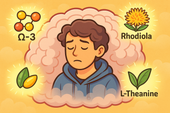
Brain Fog and Body Dysmorphic Disorder: Can Nootropic Supplements Help?
Brain fog often accompanies Body Dysmorphic Disorder, clouding focus and deepening emotional fatigue. Nootropic supplements like L-theanine, Rhodiola, and CoQ10 can help restore mental clarity, balance neurotransmitters, and bring calm energy back to the mind 🌿🧠.
-

How Stress Hormones Like Cortisol May Worsen Body Dysmorphic Disorder
Chronic stress floods the brain with cortisol — the hormone that keeps you on high alert. In Body Dysmorphic Disorder, this chemical overdrive fuels anxiety, distorts self-image, and traps the body in survival mode. Calming cortisol helps restore both peace and perspective 🌿🧠.
-

The Role of Neurotransmitters in BDD—and How Supplements May Help
Neurotransmitters like serotonin, dopamine, glutamate, and GABA shape how people with Body Dysmorphic Disorder perceive themselves. When these brain messengers fall out of balance, perception distorts — but targeted supplements can help restore calm, focus, and emotional regulation 🧠🌿.
-

What Is Body Dysmorphic Disorder? A Deeper Look at the Mind-Body Connection
Body Dysmorphic Disorder (BDD) isn’t just about appearance — it’s about perception. When brain chemistry, trauma, and stress distort self-image, the mind begins to see flaws that aren’t truly there. Healing starts by calming the nervous system and reconnecting mind and body 🪞🧠.
-

Keeping Calm in Competitive Sports: How to Train Your Mind, Body, and Chemistry for Peak Performance
Competitive pressure can overwhelm even the strongest athletes — but calm is trainable. By combining supplements like magnesium, L-theanine, and adaptogens with breathwork and mindset training, you can stay focused, balanced, and in control under any level of stress 🧠🏅.
-
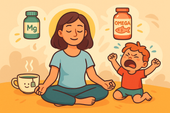
Supplements for Parents Facing Toddler Tantrums: Staying Calm When Little Emotions Run Wild
Toddler tantrums can drain even the most loving parent — but your calm is powerful. With the right supplements like magnesium, L-theanine, and ashwagandha supporting your nervous system, you can stay patient, grounded, and kind, even when emotions run high 🧸🌿.
-

Workplace Stress and Anger Management Support
Workplace stress can quickly turn into frustration — but calm is a skill you can train. By combining supplements like magnesium, L-theanine, and adaptogens with breathwork and mindset tools, you can stay focused, patient, and emotionally grounded no matter how intense the office gets 💼🌿.
-

How to Stay Patient With Family During Stressful Holidays
Holiday gatherings can stir up old stress and test your patience — but calm is possible. With nervous system support from magnesium, L-theanine, and adaptogens, plus mindful breathing and clear boundaries, you can stay centered, kind, and grounded even when family chaos unfolds 🎄💞.
-

Supplements to Keep Calm During Traffic Jams
Getting stuck in traffic doesn’t have to ruin your mood. With calming supplements like magnesium, L-theanine, and ashwagandha, you can train your body to stay relaxed and focused behind the wheel — turning gridlock into a moment of grounded patience 🚗🌿.
-
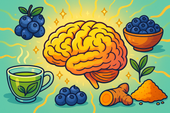
The Role of Antioxidants in Healing Brain Stress from Dissociation
Antioxidants protect the brain from the oxidative stress caused by trauma and dissociation. By neutralizing free radicals and supporting mitochondrial recovery, they help restore clarity, focus, and emotional balance — allowing the mind to heal at the cellular level 🌿🧠.
-
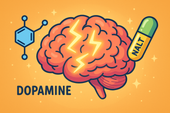
N-Acetyl L-Tyrosine (NALT) for Supporting Mental Clarity
N-Acetyl L-Tyrosine (NALT) fuels dopamine production — the neurotransmitter of focus and motivation. By supporting brain chemistry during stress, NALT helps restore mental clarity, energy, and alertness, making it easier to think clearly and feel present again ⚡🧠.
-

How Ginseng May Improve Focus and Energy in Dissociation
Ginseng helps combat the mental fatigue and fog that often come with dissociation. By supporting mitochondrial energy, balancing neurotransmitters, and regulating cortisol, it gently restores focus, motivation, and emotional presence — helping the mind reconnect with clarity and strength 🌿⚡.
-
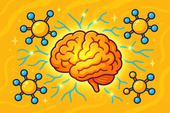
Phosphatidylserine and Dissociation: Supporting Cognitive Function
Phosphatidylserine helps calm the stress response by balancing cortisol, the body’s primary stress hormone. By lowering cortisol spikes, it protects memory, focus, and emotional stability — restoring clarity and mental presence for those struggling with dissociation 🧠🌿.
-
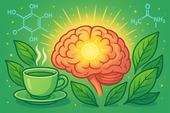
Can Green Tea Extract Help with Dissociative Brain Fog?
Green tea extract may help lift dissociative brain fog by supporting neurotransmitter balance, reducing inflammation, and enhancing energy at the cellular level. With its key compounds EGCG and L-theanine, it promotes calm focus, clarity, and emotional presence — helping you feel more alert and grounded 🍵🧠.
-
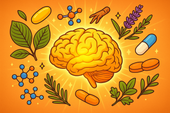
Building a Natural Supplement Stack for Dissociation Support
Building a supplement stack for dissociation means nourishing the brain and body back into communication. By supporting neurotransmitters, gut health, and energy balance through nutrients like magnesium, omega-3s, curcumin, and probiotics, you can help restore clarity, calm, and connection — one layer at a time 🌿🧠.
-

Chamomile and Lavender for Dissociative Anxiety Relief
Chamomile and lavender work together to calm dissociative anxiety by soothing the nervous system and restoring emotional safety. Their natural compounds balance cortisol, enhance GABA activity, and activate the vagus nerve — helping you feel grounded, connected, and at peace again 🌿💜.
-
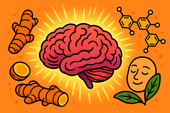
Curcumin for Inflammation and Mental Clarity in Dissociation
Curcumin, the golden compound in turmeric, does more than fight inflammation — it helps clear the mental fog often tied to dissociation. By calming neuroinflammation, balancing neurotransmitters, and supporting mitochondrial energy, curcumin can restore mental clarity, focus, and emotional presence 🌿🧠.
-
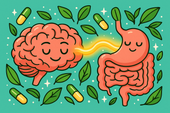
Probiotics and Dissociation: Exploring the Gut–Brain Axis
The gut–brain axis plays a vital role in emotional awareness and presence. When the microbiome is balanced, it supports serotonin production, vagus nerve activity, and calm focus. Probiotics help repair this connection — restoring safety, clarity, and the feeling of truly being in your body again 🌿🧠.
-
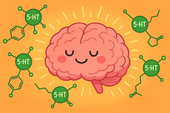
5-HTP for Dissociation: Supporting Serotonin and Emotional Stability
5-HTP helps bridge the gap between emotional numbness and stability by supporting serotonin production — the neurotransmitter that shapes mood, sleep, and sensory awareness. For people experiencing dissociation, 5-HTP may gently restore connection, presence, and emotional balance from the inside out 🌿🧠.
-
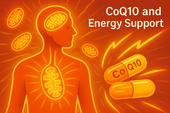
CoQ10 and Energy Support for People with Dissociation
Chronic dissociation often leaves the body running on empty — tired, foggy, and disconnected. CoQ10 helps recharge that system at the cellular level by restoring mitochondrial energy, reducing oxidative stress, and supporting the brain’s capacity to stay present. It’s energy medicine for both body and mind ⚡🧠.


















































